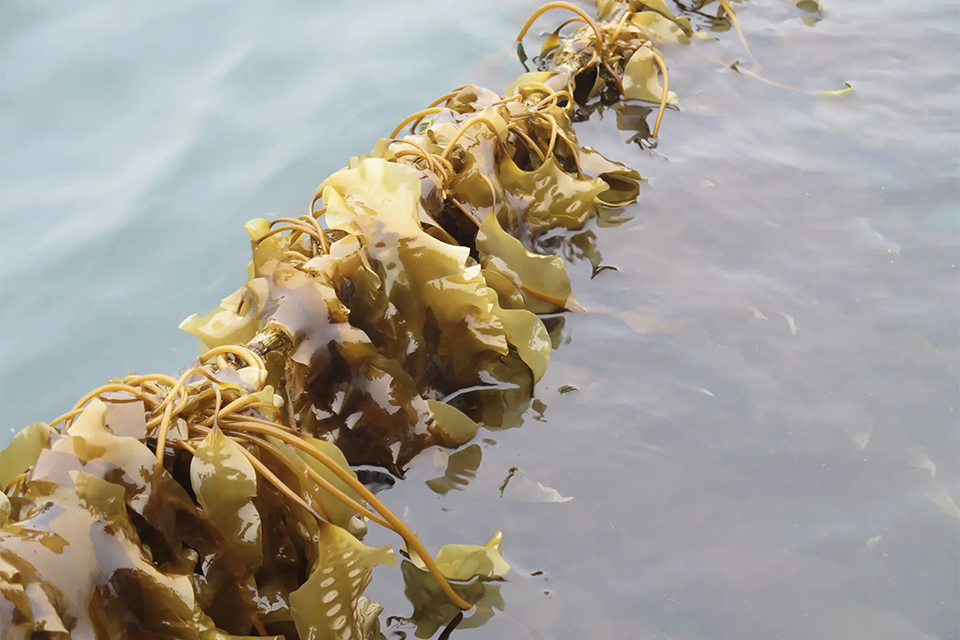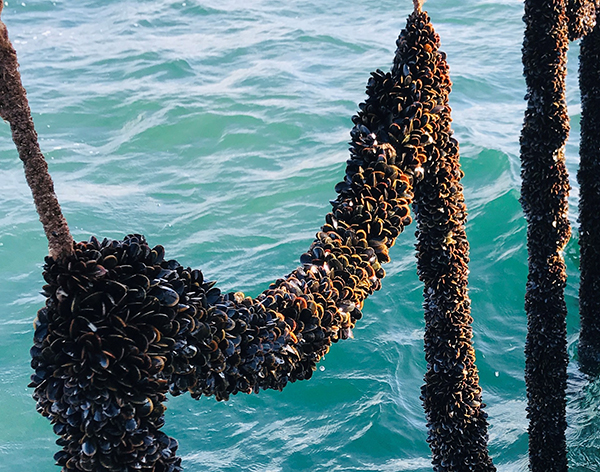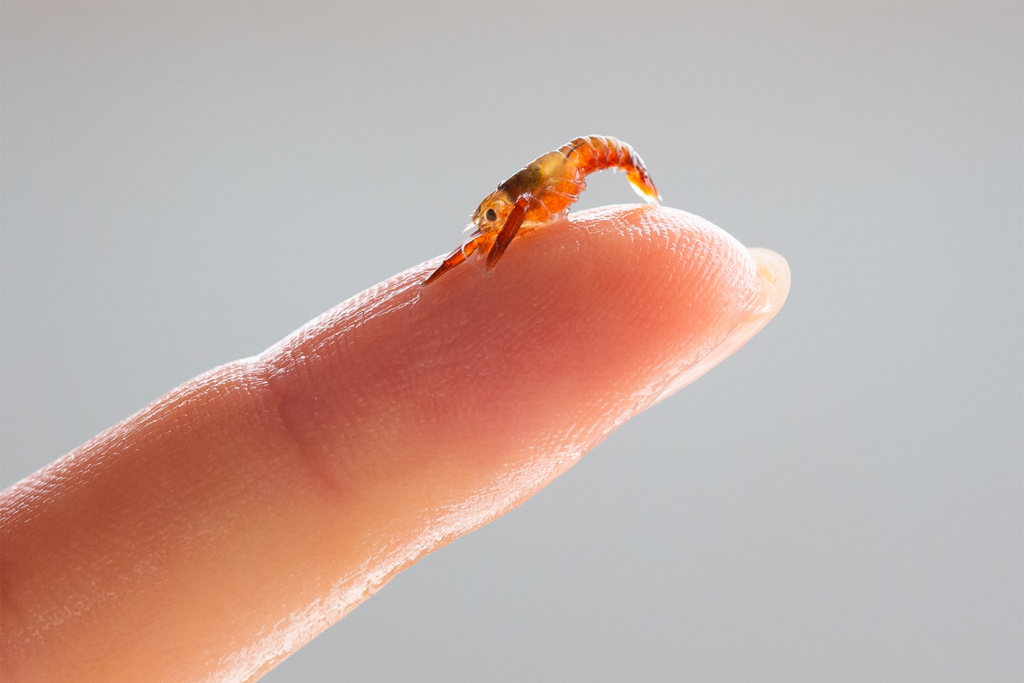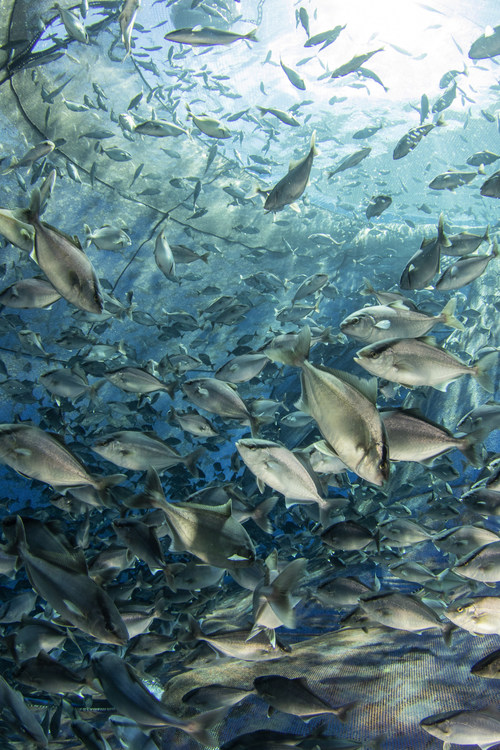The Ropes to Reefs project uses lobster tags to assess wider benefits of the UK’s first large-scale offshore mussel farm

Scientists, mussel farmers and fishermen in southwest England are conducting a research project to tag lobsters and evaluate the effects of offshore aquaculture on ocean health.
The Ropes to Reefs project, funded by the Fisheries Industry Science Partnership (FISP) scheme, investigates the wider benefits of the UK’s first large-scale offshore mussel farm in Lyme Bay.
“Offshore mussel farming has the potential to become one of the world’s most sustainable, large-scale sources of healthy protein,” said Emma Sheehan, associate professor of marine ecology at the University of Plymouth. “Through the Ropes to Reefs project, we can gauge the industry’s potential benefits far beyond just providing a sustainable source of food.”
The project is led by scientists from the University of Plymouth, collaborating with partners such as Offshore Shellfish Ltd, Scallop Ranch Ltd, Biome Algae Ltd, as well as several local and national fishing and conservation organizations.
“Working closely with the fishing and mussel farming industry, and building on previous and ongoing research, we can deliver essential evidence regarding the impact of offshore aquaculture,” said Sheehan. “This will enable us to fully assess whether it can serve as a nature-based solution that preserves – if not enhances – the health and productivity of our ocean.”
Starting in March, the project will tag lobsters inhabiting the mussel farm area. The team aims to understand their movements better and identify their preferred habitats.
In the next few months, the project will tag thornback rays, black bream and thick-lipped mullet. This will help researchers understand how the mussel farm impacts important fish species in the region’s fishing industry.
The project aims to fill gaps in scientific knowledge about fish and crustaceans in the area. It also seeks to explore how the mussel farm might benefit nearby fisheries in the future.
“The biggest environmental gain from offshore mussel farming is that it produces large quantities of high-quality protein with a lower environmental footprint than virtually any other food production method,” said John Holmyard, managing director at Offshore Shellfish Ltd. “So what we are getting is food provision with zero land use, zero freshwater use, zero pollution, zero fertilizer, zero chemicals, zero medication, zero feed input, zero or very low net carbon emissions. On the flip side to that, it delivers positive ecosystem services, increased biodiversity, habitat creation and the spillover benefit to surrounding fisheries. When you add up all of that, it makes a very powerful case for this type of food production.”
The great mussel debate: What’s wild, what’s farmed and what certification scheme fits the bill?
The project will use cutting-edge, cost-effective and non-destructive remote sampling techniques to monitor the seabed and ocean under and around the farm. This includes state-of-the-art echo sounder and multibeam sonar, along with ground truthing cameras deployed from local fishing boats, both of which will produce high-resolution data.
Researchers will also use technology developed through the FISH INTEL project, another initiative led by the university, to track the tagged fishes and crustaceans using the world’s first multi-farm aquaculture telemetry network.
“Anecdotally, we often say that scallop farms are a breeding ground for fish,” said Greg Clifford, director of Scallop Ranch Ltd and one of the Ropes to Reefs project partners. “They have creatures growing on all the equipment we have in the water, some living and growing on or around it and others feeding on the life it houses. Ropes to Reefs will add the science and rigor to this, quantifying and rationalizing what we see as we go about our daily work. When we truly understand how the farm interacts and supports the surrounding ecosystem, we can build a case for why low-trophic aquaculture is such an important part of the modern world.”
Now that you've reached the end of the article ...
… please consider supporting GSA’s mission to advance responsible seafood practices through education, advocacy and third-party assurances. The Advocate aims to document the evolution of responsible seafood practices and share the expansive knowledge of our vast network of contributors.
By becoming a Global Seafood Alliance member, you’re ensuring that all of the pre-competitive work we do through member benefits, resources and events can continue. Individual membership costs just $50 a year.
Not a GSA member? Join us.
Author
-
Responsible Seafood Advocate
[103,114,111,46,100,111,111,102,97,101,115,108,97,98,111,108,103,64,114,111,116,105,100,101]
Related Posts

Innovation & Investment
Tasmania green-lights research into offshore kelp farming
The project will focus on developing technologies suitable for commercial-scale offshore kelp farming and production in Tasmania.

Responsibility
Study: Offshore mussel farms could benefit marine environment
A University of Plymouth study suggests that offshore aquaculture farms could potentially benefit the wider marine environment.

Responsibility
How restorative aquaculture is lending a helping hand to declining fish species
Researchers explore how effectively restorative aquaculture can enhance declining fisheries and safeguard native fish populations.

Responsibility
TNC evaluation confirms offshore aquaculture company’s low carbon footprint
The Nature Conservancy assessment confirms the low carbon footprint and ocean-floor impact of offshore aquaculture company Forever Oceans.



